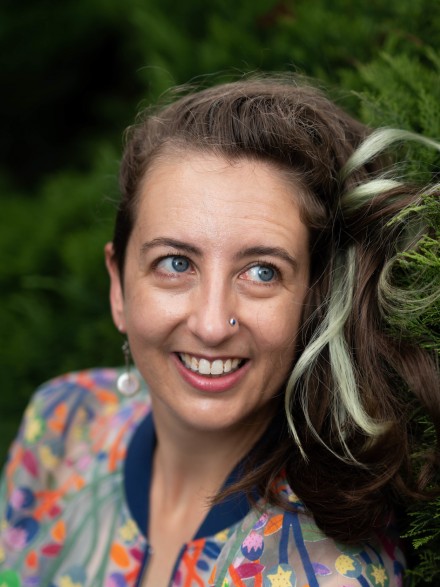Associate Professor Caroline Schuster

Contacts
As a student at Stanford University, social movements in Argentina catalyzed by the 2002 economic crisis and largest sovereign debt default in world history inspired me to trace links between the cheap credit fueling the expansion of seemingly ordinary California towns like mine, and events unfolding thousands of kilometers away. I visited the Southern Cone of Latin America for the first time in 2003 to explore community based anti-poverty programs that responded to the crisis, focusing primarily on indigenous entrepreneurialism in the Andean region of Argentina’s border with Bolivia.
I expanded my research on microcredit programs in Latin America in graduate school at the University of Chicago where I pursued by PhD in cultural anthropology from 2005-2012. My interest in informal markets, and particularly women’s livelihoods, drew me to Ciudad del Este, the famous free trade zone on Paraguay’s Triple-Frontier with Argentina and Brazil. Microcredit is part of a global trend of financial inclusion that brings banking services, especially small loans, to the world’s poor — but how do these cooperative development projects work in a place like Ciudad del Este, which is awash in black money and the profits of contraband?
In addition to my work on economic anthropology, as a researcher at Harvard University’s Weatherhead Centre for International Affairs, where I was a Fellow of the Harvard Academy for International and Area Studies from 2012-2014, I focused on social theory and research methodologies. Building on that scholarly agenda, I have co-authored a project with Dr. Sohini Kar on research methods in social studies of finance and collaborated with Dr. Jesse Driscoll on the politics and ethics of conducting research in high-risk settings.
Since joining the School of Archaeology and Anthropology in the College of Arts and Social Sciences at the ANU in 2014, I have broadened my research focus to research the expansion of financial systems in Latin America. There is a growing consensus that unfettered markets in Paraguay offer a preview of the shape risk and vulnerability might take globally in ever-more deregulated financial systems and development settings. Paraguayans’ diverse processes of insuring against future damage afford an opportunity to address a basic question rarely posed in debates about crises, both economic and environmental: What social and cultural processes do the work of transforming environmental damages into other forms of value in contemporary capitalism? My Australian Research Council Discovery Early Career Researcher Award (DECRA, 2017-2020), "Insurance and disaster relief: using the anthropology of finance to rethink climate change adaptation” explores disaster capitalism and the financialization of local risk-mitigation strategies in the context of our ever more unstable climate.
Research interests
Economic anthropology, value, credit and debt; microcredit, NGOs and development policy; insurance, risk, finance; environment, climate change, weather catastrophes; gender, kinship, feminist theory; Latin America, Paraguay
My current research on insurance and weather catastrophes is based on anthropological fieldwork in Paraguay supported by an Australian Research Council Discovery Early Career Researcher Award (DECRA 2017-2020). It is my second major research project following a decade of engagement with the microfinance industry.
My first book, Social Collateral: women and microfinance in Paraguay’s smuggling economy (University of California Press, 2015) is an ethnographic account of freewheeling frontier capitalism in Paraguay’s triple-frontier with Argentina and Brazil. Taken together, these two research projects offer a sustained study of economic interdependency. My research agenda asks: how and under what conditions are people collectively obligated in everyday economic practice? What value systems compel people to knit and ravel these economic interdependencies, and with what effects? Links between miccrocredit and the global financial dystem are expored in colloaborative agenda around "Subprime Empire" with Associate Professor Sohini Kar (London School of Economics).
Climate finance has adressed weather disasters such as El Niño through novel insurance products and facilities - my ethnographic research in Latin America tracks the rising popularity of microinsurance in the context of climate risks. A collaborative graphic ethnography, Forecasts: a story of weather and finance at the edge of disaster draws connections between farmers facing drought in northern Paraguay all the way to the global reinsurance industry and international development policy. The research links up to environmental anthropology such as my open access syllabus on "weedy anthropology" (https://culanth.org/fieldsights/in-the-weeds).
Groups
- Researcher, Agriculture, food and nutritional security
- Researcher, Climate economics and policy
- Researcher, Risk, vulnerability and resilience







